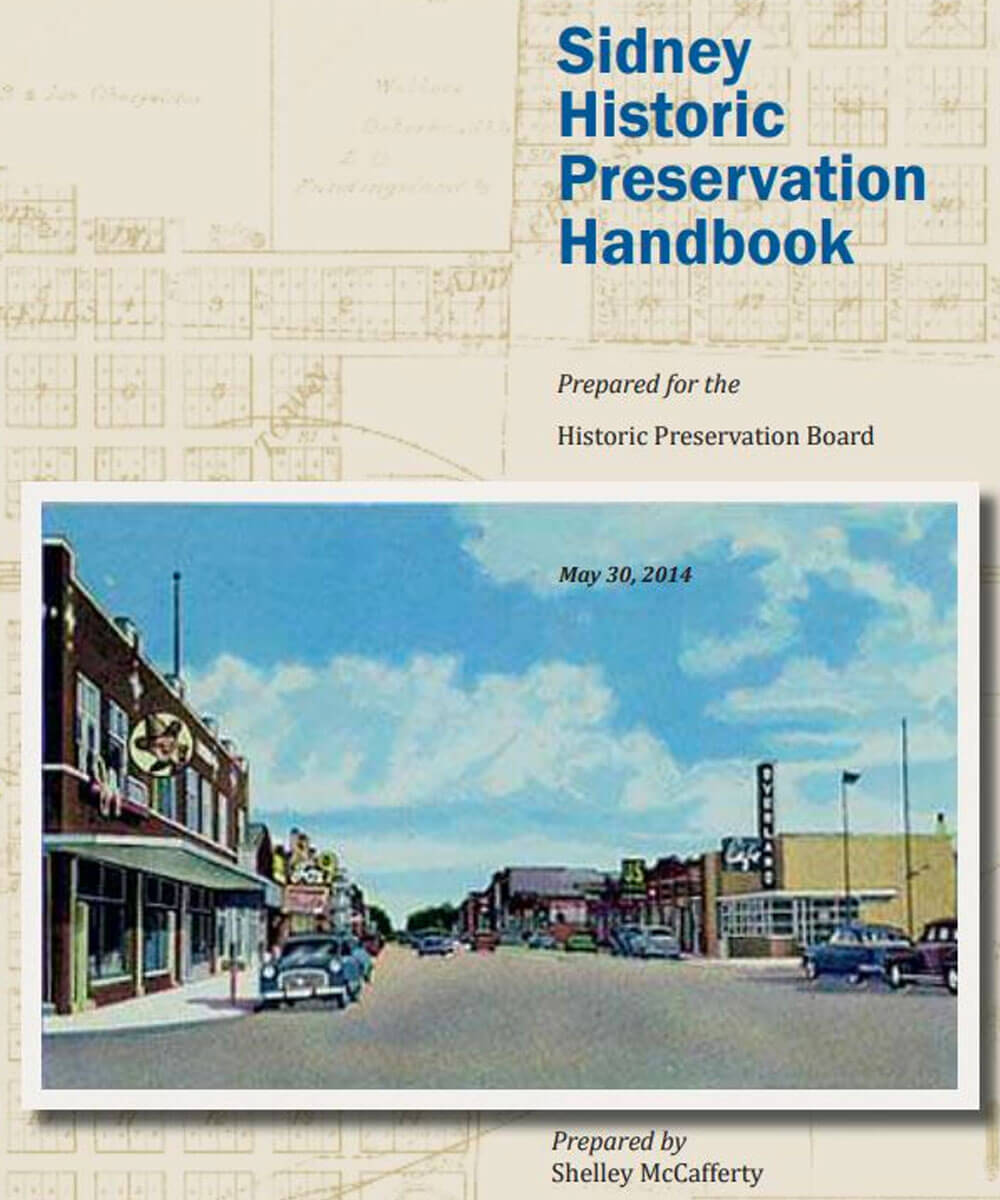Historic Preservation
Certified Local Governments
Who We Are
No one knows a community better than the people who live there. The Certified Local Government (CLG) program is a partnership between local governments, the Nebraska State Historical Society, and the National Park Service to help tell your community’s diverse story. We want you to have an opportunity to tell your own history. CLGs provide grassroots wisdom and resources to encourage local preservation efforts. Communities all across Nebraska have discovered that historic preservation is an important tool for economic development, downtown revitalization, and heritage tourism.
By becoming a CLG, your town gains the ability to:
- Encourage suitable development through ordinances
- Landmark historic places (these could become eligible for Nebraska Historic Tax Credits and/or the Valuation Incentive Program)
- Fund public outreach/educational resources and activities using yearly grants
- Access technical assistance and training from the Nebraska State Historic Preservation Office and the National Park Service
To learn more, contact our CLG Coordinator.
Kelli Bacon
Certified Local Government Coordinator
[email protected]
402-540-5847
Become a History Nebraska Member!
Our members make history happen.
Join Now
Current Certified Local Governments
Auburn
Auburn
Fairbury
Fairbury
Lincoln
Lincoln
Neligh
Neligh
North Platte
North Platte
Omaha
Omaha
Plattsmouth
Plattsmouth
Red Cloud
Red Cloud
Sidney
Sidney
FAQ's
What are the first steps to becoming a CLG?
What are the requirements for becoming a CLG?
- Designate and then protect historic properties using a local ordinance
- Establish a historic preservation commission of at least 5 qualified members
- Maintain a system for the survey and inventory of local historic resources
- Encourage public participation in preservation, especially through the National Register of Historic Places
- Have access to a staff person who oversees the historic preservation program
How does a CLG benefit its community?
How does the CLG grant program work?
What Projects Qualify for CLG grant funding?
- Hiring consultants for archeological, architectural, and historical surveys
- Preservation planning
- Preparing a National Register or local landmark nomination
- Programs for public education
- Walking/driving tours and other audio/video productions
- Staff and commission training
- Workshops, lectures, and conferences
What doesn't qualify for CLG grant funding?
- Repair, rehabilitation, reconstruction, moving, or acquiring historic properties or sites
- Plans and specifications for individual, privately-owned properties
- Landscaping, lighting, or banners
- Conservation of collections and curatorial work
- Cash reserves, endowments, or revolving funds
- Fund-raising costs or other miscellaneous costs such as contingencies
What role does a CLG play in the National Register of Historic Places nomination process?
Can a CLG community lose its CLG status?
Yes. A CLG may request decertification in writing at any time. The Nebraska State Historic Preservation Office also reserves the right to recommend decertification of a CLG. The National Park Service ultimately decertifies the CLG.
What are the training requirements for Historic Preservation commissioners and directors?
Is there a population size requirement for participation in the CLG program?
CLG Success Story: The Sidney Historic Preservation Handbook
The Sidney Historic Preservation Handbook was designed to be a resource for property owners, contractors, and others who may be working towards improving a historic building. The handbook provides all the necessary information needed to understand regulations and best practices. It also outlines several grant programs offered by the city to incentivize development via the rehabilitation of historic buildings.

Help Shape History
Become a Member
Being a member is the easiest way to be involved in our mission to preserve and share our state's rich history. Find out how!
Volunteer
Volunteers work with NSHS staff members to support our mission
Start Your Career
Interested in joining the NSHS team? Keep an eye on job listings!
